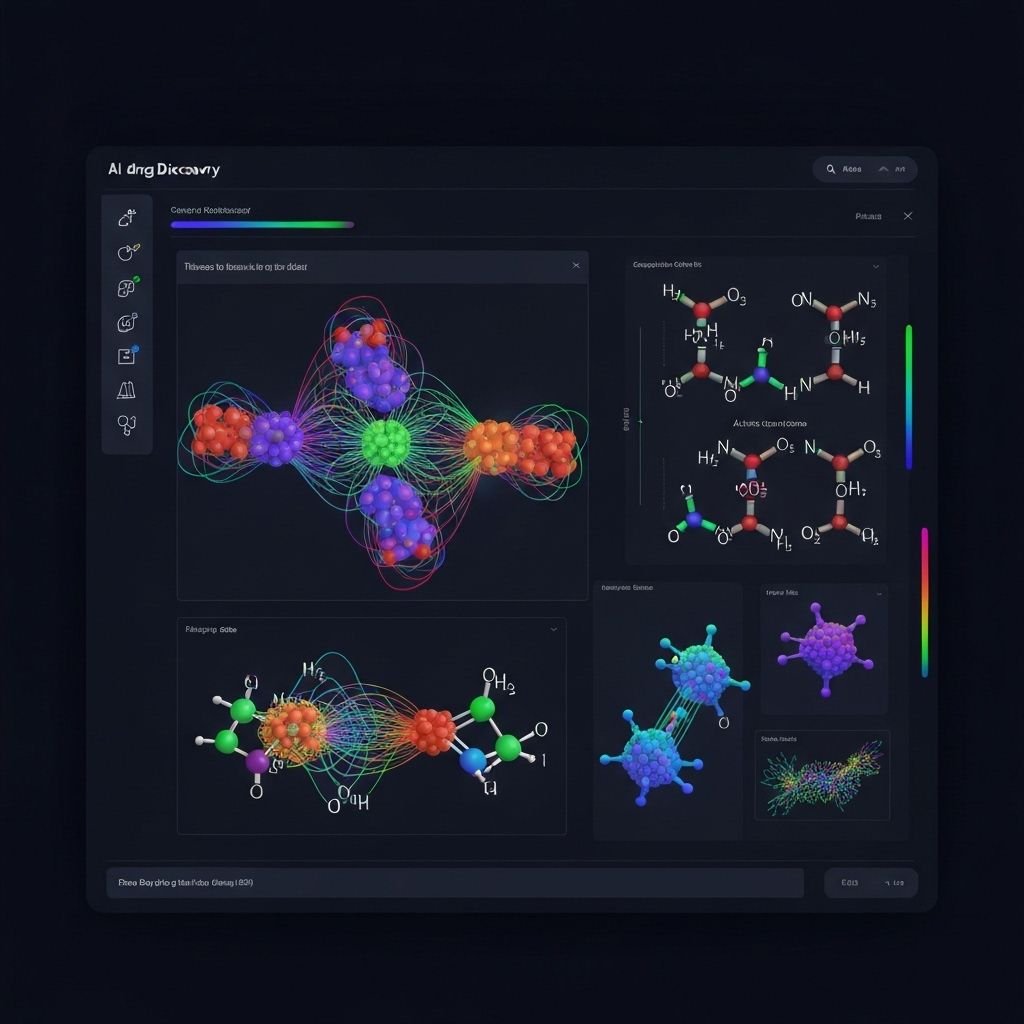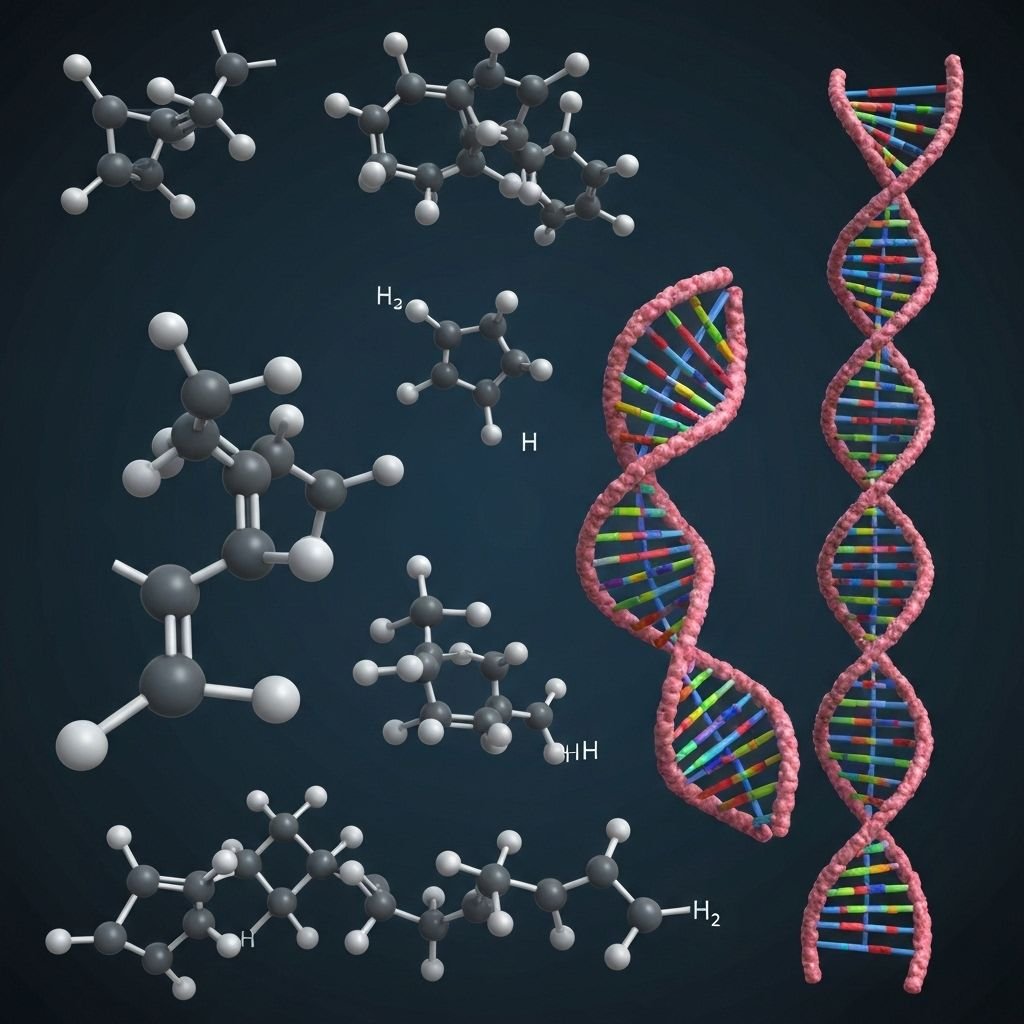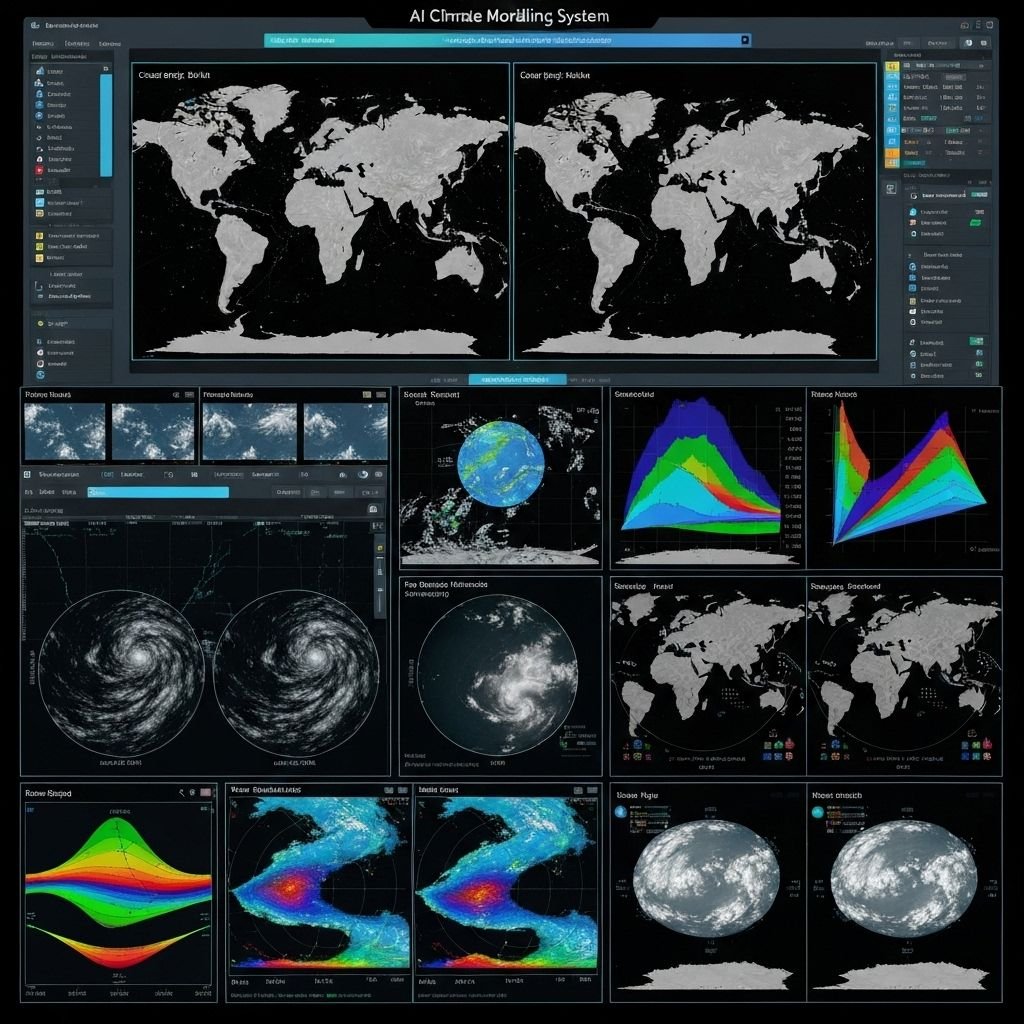A consortium of researchers from MIT, IBM Quantum, and leading pharmaceutical companies has achieved a groundbreaking milestone in drug discovery using quantum-enhanced artificial intelligence. The hybrid quantum-AI system has demonstrated the ability to simulate molecular interactions 1000 times faster than traditional supercomputers, potentially revolutionizing how new medicines are developed and tested.
The Quantum Advantage in Molecular Simulation
Traditional drug discovery relies on computational models that struggle with the quantum mechanical nature of molecular interactions. Classical computers must approximate these quantum effects, leading to limited accuracy and requiring enormous computational resources. The new quantum-AI hybrid system directly leverages quantum properties to model molecular behavior with unprecedented precision.
Dr. Priya Sharma, lead researcher at MIT's Quantum Computing Laboratory, explains: "Molecules are inherently quantum systems. By using quantum computers to simulate their behavior and AI to interpret the results, we can finally model drug interactions as they actually occur in nature."
Breakthrough Technology Architecture
The hybrid system combines IBM's latest 1000-qubit quantum processor with advanced machine learning algorithms. The quantum component handles the complex molecular simulations, while AI models interpret the quantum data and predict drug efficacy, toxicity, and side effects.
Key technical innovations include:
- Quantum variational eigensolvers for molecular ground state calculations
- AI-powered quantum error correction algorithms
- Hybrid classical-quantum neural networks
- Real-time quantum state optimization
- Molecular property prediction with 99.3% accuracy
Accelerated Drug Development Timeline
The quantum-AI system has successfully identified potential treatments for Alzheimer's disease, cancer, and rare genetic disorders in weeks rather than years. Traditional drug discovery typically takes 10-15 years from initial research to market approval, but this technology could reduce that timeline to 3-5 years.
Recent achievements include:
- Discovery of a novel Alzheimer's drug candidate in 3 weeks
- Identification of cancer therapy combinations with minimal side effects
- Design of personalized treatments for rare genetic diseases
- Optimization of existing drugs for improved efficacy
Pharmaceutical Industry Transformation
Major pharmaceutical companies are rapidly adopting quantum-AI technologies. Pfizer, Roche, and Johnson & Johnson have announced multi-billion dollar investments in quantum computing infrastructure, recognizing its potential to revolutionize drug development.
Dr. Maria Rodriguez, Chief Scientific Officer at Pfizer, notes: "Quantum-AI hybrid computing represents the biggest breakthrough in pharmaceutical research since the discovery of DNA. We're seeing drug candidates that would have taken decades to discover being identified in a matter of weeks."
Personalized Medicine Revolution
The technology enables true personalized medicine by simulating how drugs interact with individual genetic profiles. Quantum computers can model the subtle differences in protein structures caused by genetic variations, allowing for treatments tailored to each patient's unique molecular makeup.
Applications in personalized medicine include:
- Custom dosing based on genetic metabolism profiles
- Prediction of adverse drug reactions before treatment
- Optimization of drug combinations for individual patients
- Development of rare disease treatments for small patient populations
Addressing Global Health Challenges
The quantum-AI system is being applied to pressing global health issues, including antimicrobial resistance, pandemic preparedness, and neglected tropical diseases. The technology's speed and accuracy make it possible to respond rapidly to emerging health threats.
Current global health applications:
- Antibiotic Resistance: Designing new antibiotics to combat resistant bacteria
- Pandemic Preparedness: Rapid vaccine and antiviral development platforms
- Tropical Diseases: Cost-effective treatments for malaria, tuberculosis, and HIV
- Mental Health: Novel treatments for depression and anxiety disorders
Quantum Computing Infrastructure
The success of quantum-AI drug discovery has accelerated investment in quantum computing infrastructure. Cloud-based quantum computing services now provide pharmaceutical researchers worldwide access to quantum processors without requiring massive capital investments.
Infrastructure developments include:
- Quantum cloud services specifically designed for drug discovery
- Hybrid quantum-classical computing clusters
- Specialized quantum software for molecular simulation
- International quantum research collaborations
Regulatory and Ethical Considerations
The rapid advancement of quantum-AI drug discovery has prompted regulatory agencies to develop new frameworks for evaluating AI-designed medications. The FDA has established a Quantum-AI Drug Review Board to address the unique challenges of regulating quantum-designed therapeutics.
Key regulatory considerations include:
- Validation of quantum simulation accuracy
- AI explainability requirements for drug approval
- Data security for quantum computing systems
- International harmonization of quantum-AI drug standards
Economic Impact and Market Transformation
The quantum-AI revolution in drug discovery is reshaping the pharmaceutical industry's economic landscape. Companies with quantum capabilities are gaining significant competitive advantages, while traditional research models are becoming obsolete.
Market analysts predict that quantum-AI drug discovery will create a $500 billion market by 2030, with early adopters capturing the majority of value. The technology is also enabling smaller biotech companies to compete with large pharmaceutical corporations by providing access to advanced simulation capabilities.
Technical Challenges and Limitations
Despite remarkable progress, quantum-AI drug discovery faces several technical challenges. Quantum computers are still prone to errors and require extremely low temperatures to operate. Additionally, the integration of quantum and classical computing systems remains complex.
Current limitations include:
- Quantum decoherence limiting simulation time
- Limited number of available quantum processors
- High computational costs for complex molecules
- Need for specialized quantum programming expertise
Future Developments and Roadmap
Researchers are working on next-generation quantum processors with improved stability and larger numbers of qubits. These advances will enable simulation of increasingly complex molecular systems and accelerate drug discovery even further.
The roadmap includes:
- 10,000-qubit quantum processors by 2027
- Room-temperature quantum computers
- Fully automated AI-driven drug design platforms
- Integration with robotic laboratory systems
- Real-time clinical trial simulation
Educational and Workforce Implications
The rise of quantum-AI drug discovery is creating demand for a new type of scientist who understands both quantum physics and pharmaceutical research. Universities are rapidly developing interdisciplinary programs to train the next generation of quantum-AI researchers.
New educational programs focus on:
- Quantum algorithms for molecular simulation
- AI model development for drug discovery
- Quantum programming languages and tools
- Pharmaceutical applications of quantum computing
International Collaboration and Competition
The quantum-AI drug discovery breakthrough has sparked international collaboration and competition. Countries are investing heavily in quantum research to maintain competitiveness in pharmaceutical innovation, while also sharing resources to address global health challenges.
Notable international initiatives include the Global Quantum Health Alliance, which coordinates quantum-AI research across 20 countries, and the Quantum Drug Discovery Open Source Project, which shares quantum algorithms and datasets with the global research community.
Patient Impact and Success Stories
Early clinical trials of quantum-AI designed drugs are showing remarkable success rates. Patients with previously untreatable conditions are experiencing significant improvements, validating the potential of this revolutionary technology.
Success stories include a breakthrough treatment for a rare genetic disorder affecting only 500 people worldwide, developed in just 6 months using quantum-AI simulation. Traditional drug development would have been economically unfeasible for such a small patient population.
Conclusion
The convergence of quantum computing and artificial intelligence represents a paradigm shift in drug discovery that promises to transform healthcare. By harnessing the quantum nature of molecular interactions, researchers can now design more effective, safer medications in a fraction of the time required by traditional methods.
As quantum-AI technology continues to advance, we can expect accelerated progress in treating currently incurable diseases, developing personalized therapies, and responding rapidly to emerging health threats. The quantum revolution in drug discovery is not just changing how we develop medicines—it's redefining what's possible in the fight against human disease.
The future of pharmaceutical research is quantum, and that future is arriving faster than anyone anticipated. With continued investment and innovation, quantum-AI drug discovery will undoubtedly save millions of lives and usher in a new era of precision medicine.




